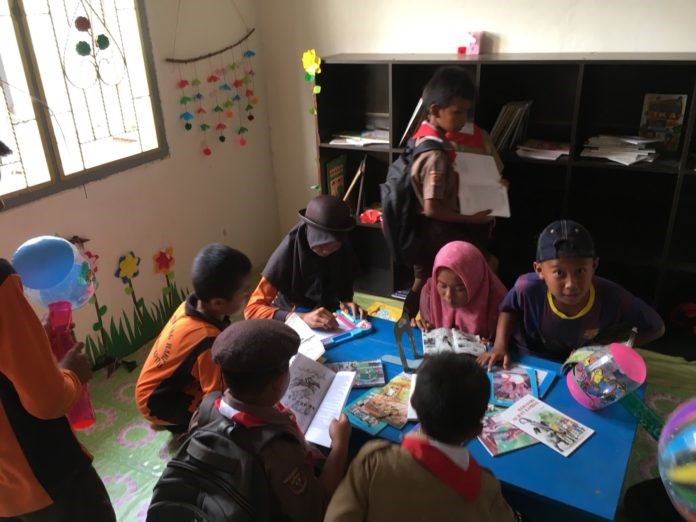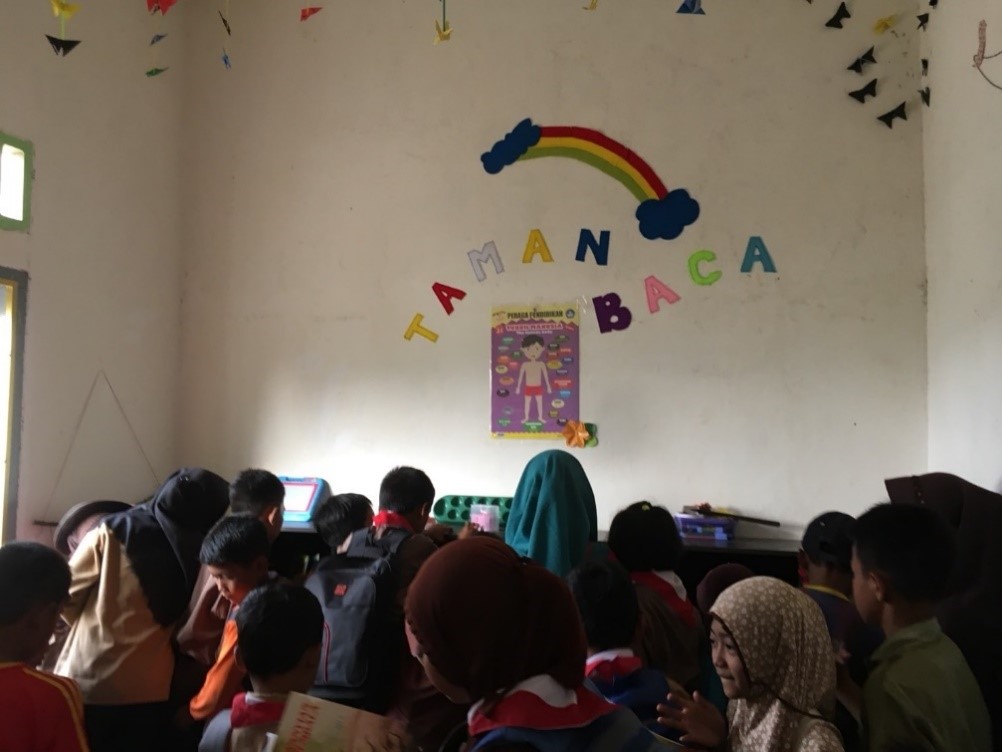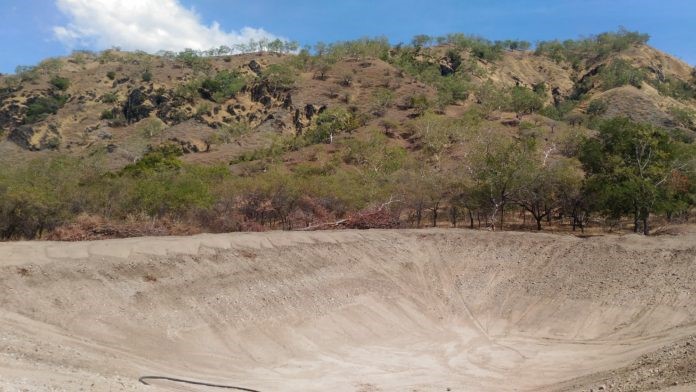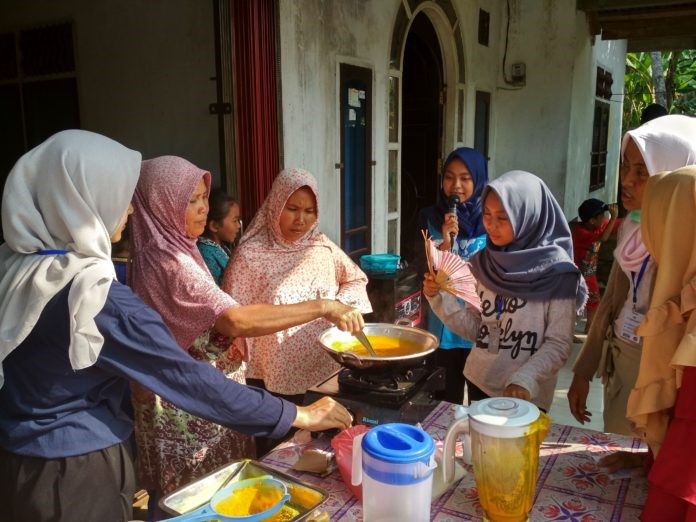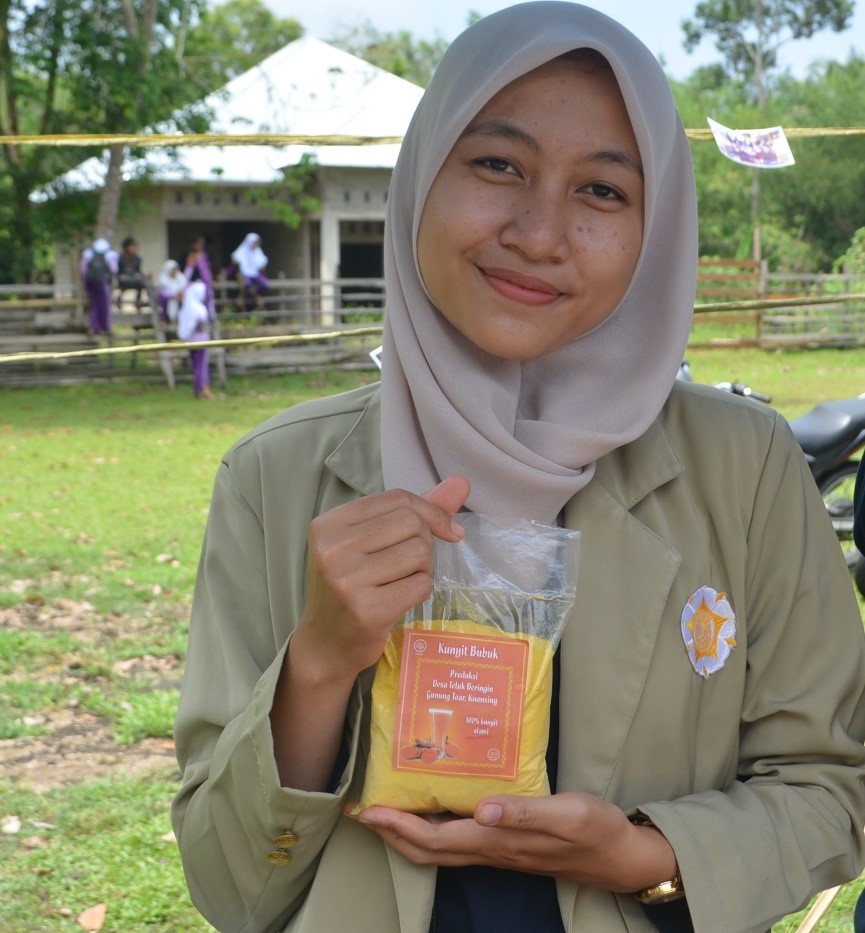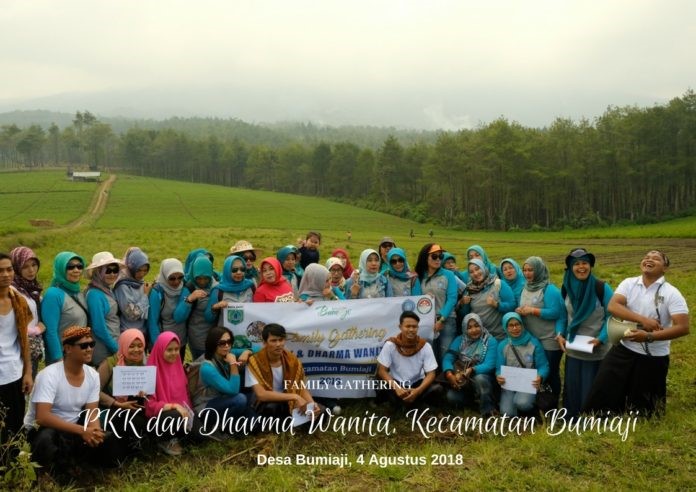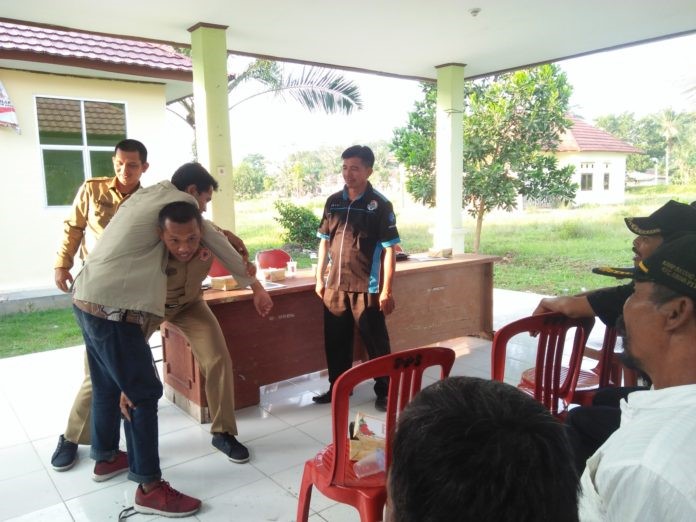
BPBD Tulang Bawang Officer and UGM Student were demonstrating Handling of Disaster Victim. Photo by KKN-PPM UGM team of LA-002
Disaster is a series of events that have an impact on material and life losses that must be anticipated. Ready or not, we must be prepared to face disaster. Even though it cannot be avoided, at least the material and life losses due to the disaster can be minimized.
Among the many disasters that hit humans, floods became one of the disasters that became a scourge for residents in the Rawa Pitu District, Tulang Bawang, Lampung. Almost every year this region becomes a flood customer from the overflowing of the Tulang Bawang River and the Pidada River which crushes the area.
Seeing these alarming conditions, the students of the KKN-PPM Universitas Gadjah Mada Yogyakarta 2018 unit LA-002 initiated a disaster management socialization event at the Rawa Pitu District Hall on Thursday (02/08). This effort was carried out by collaborating with the Regional Disaster Management Agency (BPBD) of Tulang Bawang Regency to provide an understanding of disaster management. This activity is intended to improve the ability of the community to deal with floods in particular.
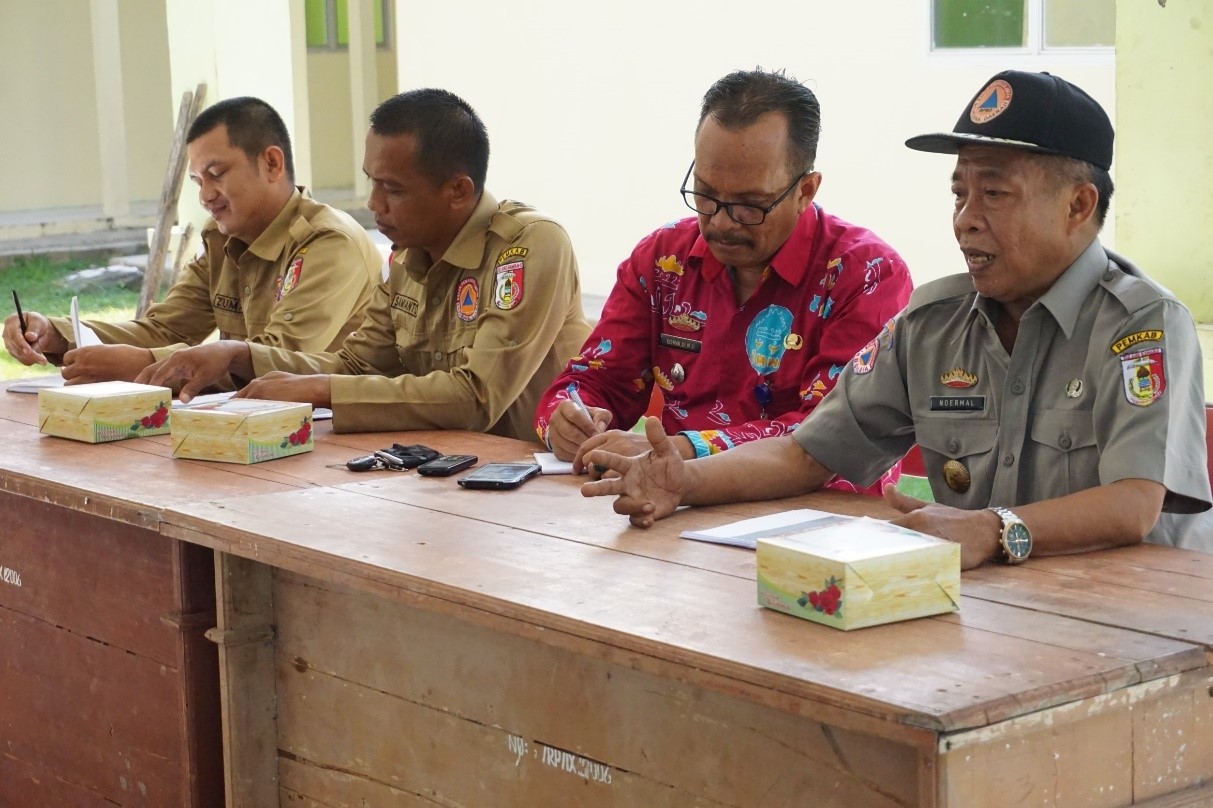
Officials of BPBD Tulang Bawang were delivering materials related to disasters to the public of Rawa Pitu. Photo by KKN-PPM UGM team
Dissemination is carried out by delivering general materials about disasters and continuing with efforts to deal with minor fires and first aid to victims of accidents and sinking. Not only that, the activity was accompanied by direct practice of helping victims when a disaster occurred to make it easier for people to understand it.
Subari, one of the village heads said, many people did not know what actions to take when they found a disaster. He hoped that the activity could provide a new understanding for residents to be responsive in facing natural disasters, especially floods.
Villagers in Rawa Pitu District welcomed the socialization. They are enthusiastic to learn it. The smooth running of the activity was attended by five village heads and 20 heads of neighborhood groups in the Rawa Pitu Sub-District.
Noermal, chairman of the Bulang Bawang BNPB stated, flooding was a natural disaster they did not expect. Therefore the community must always be ready to respond when a disaster occurs. Thus, it is expected that material and mental losses can be minimized as well as possible.
(Author: Ismail Yusuf ; Source: https://muda.kompas.id/2018/08/05/mahasiswa-ugm-dan-bpbd-sosialisasikan-manajemen-hadapi-bencana/; translator: Harun Ardiansyah)

